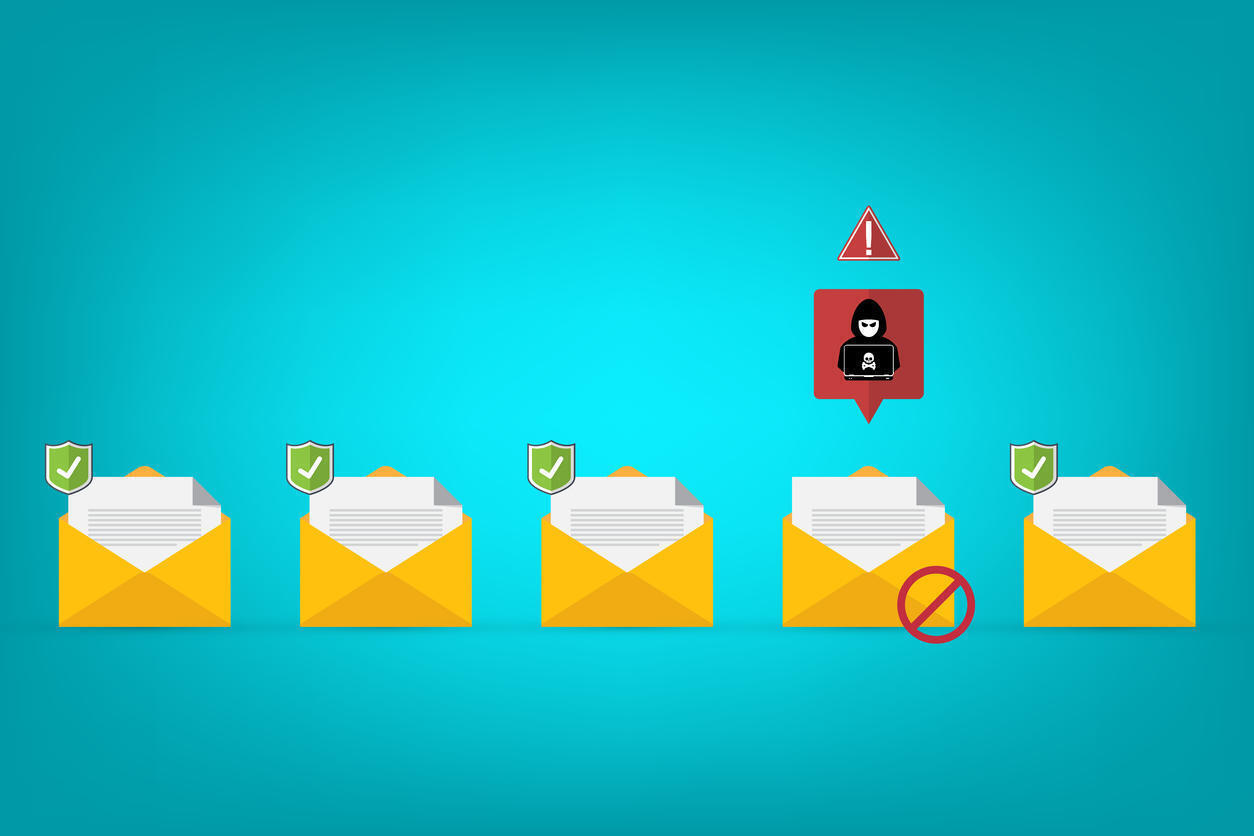- Netgear's enterprise ambitions grow with SASE acquisition
- The latest robot vacuum innovation will leave clean freaks drooling (and it's $450 off)
- Jackery's updated portable power station boasts better battery - and a big price cut
- Samsung is giving away free 32-inch smart monitors, here's how to qualify
- Honey, the Amazon humanoid delivery robot is here! (well, almost)
Phishing continues to target big businesses and exploit COVID-19 fears in Q2 2021

Spam as a share of global mail traffic rose, and attackers have started to adapt their scams to other languages to reach wider audiences.
Image: Vladimir Obradovic, Getty Images/iStockphoto
Despite a rise in global spam numbers, adoption of new languages by phishing attackers, new scam types and a shift in the most commonly impersonated business type to phish people, Kaspersky’s Q2 2021 quarterly spam report is described by its authors as “not delivering any surprises.”
“In Q2, as we expected, cybercriminals continued to hunt for corporate account credentials and exploit the COVID-19 theme,” the report said.
SEE: Security incident response policy (TechRepublic Premium)
That’s not to say there wasn’t anything actually interesting in Q2 phishing and spam statistics: The percentage of email that’s junk is up to 46.56% after bottoming out in March 2021, and global internet portals have displaced online stores as the business type most commonly impersonated by cybercriminals in phishing campaigns.
Scammers have also been cleverly exploiting pandemic-related mail and supply chain disruption to lure victims. One website that Kaspersky uncovered purported to be a Russian Post website where visitors could bid on undelivered packages based not on content, but by weight. Winners were told they would receive their package, which never arrived.
Messages claiming postage was owed, or an order payment hadn’t been completed, were commonly seen as well, and generally contained attachments loaded with malware that claimed to be an invoice. These messages, in particular, surged in Q2, with many attackers branching out into new languages to find more victims.
In addition to exploiting pandemic-related mail slowdowns, attackers have also been scamming the public with fake COVID-19 grant emails. Users are asked to provide bank card details in order to disburse funds, which never arrive.
Also common in Q2 2021 were fake attachments that send business users to fake Office365 or other business software login portals, fake online movie streaming scams and investment and property-related scams, which Kaspersky described as “a curious takeaway” as those attacks spiked in Q2.
Attackers are also getting smart in how they target certain scams. WhatsApp, purchased by Facebook in 2014, was more tightly integrated with Facebook in early 2021, and scammers quickly adapted to that change. Chat or message scams that invite users to chat with “beautiful strangers” redirect users to a Facebook login phishing page. Emails to WhatsApp users have also been found to contain malware that can affect mobile devices.
The best thing users can do is be wary of any unexpected emails and be very careful about clicking on any email attachments or links—go to the website directly,” said Kaspersky senior web analyst Tatyana Shcherbakova.
SEE: How to manage passwords: Best practices and security tips (free PDF) (TechRepublic)
As for what to expect in Q3 2021, Kaspersky said that businesses will continue to be the most popular targets, and that COVID-19 scams will continue to hang around in one form or another. The report also predicts a rise in vacation-related scams as the travel season continues, and Olympic Games-themed scams in the wake of the Tokyo games.


